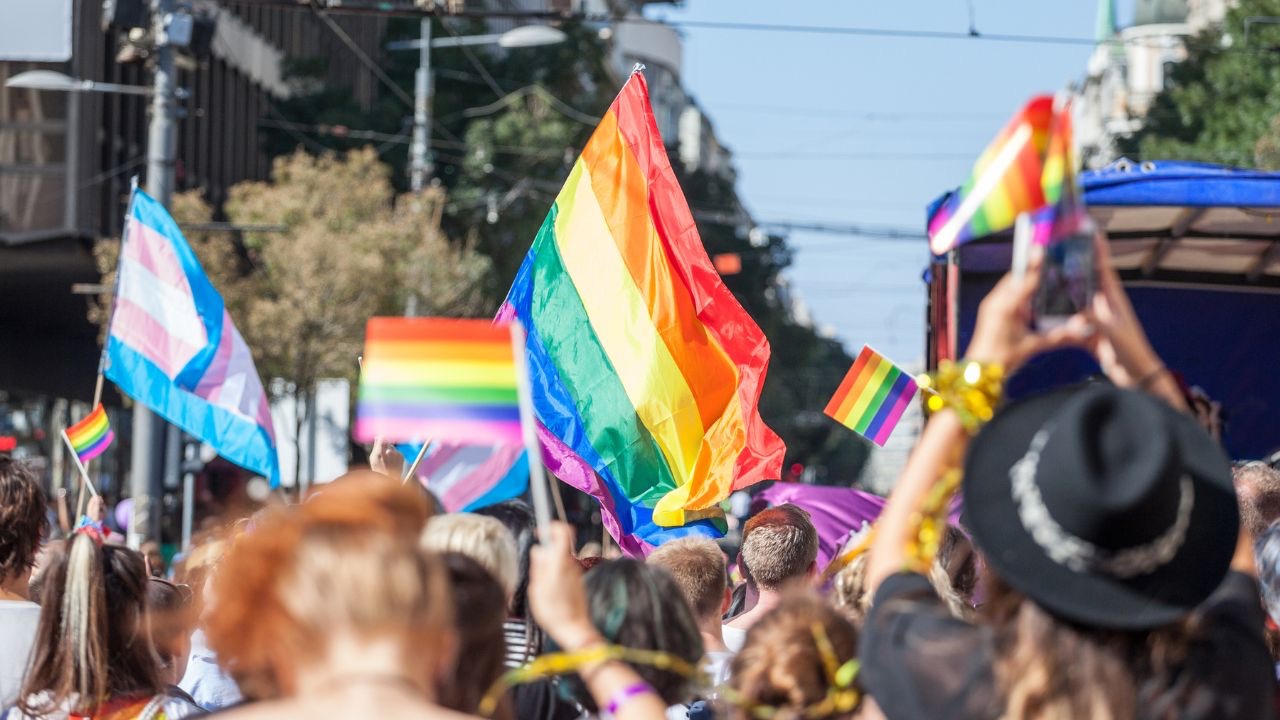
Pride Month is wrapping up, but many communities celebrate Pride events long after June ends. You may have attended a Pride event already, or you may have one coming up. Pride is a celebration of the LGBTQ+ community and an acknowledgment of the oppression and persecution of members of the LGBTQ+ community.
While allies are welcome to attend Pride events to support their LGBTQ+ friends and loved ones, it's important to remember that we are guests at their party.
While they are okay with us being there, they didn't actually invite us (even if someone asked us to attend), and we need to be mindful not to center ourselves.
It's an honor to attend Pride. Each time, I experience something different and take away something new. While every event has the same underlying idea (see above), each one is unique in its own way based on people, location, and venue. Even if you attend the same Pride event year after year, it will be a different experience each time.
Whether you are an experienced Pride attendee or are attending your first Pride event this year, it helps to know what to expect ahead of time.
Here are three lessons I learned from going to Pride.
1. Be prepared. Don't show up to a Pride event expecting to learn the history of Pride and about the LGBTQ+ community. Do your research ahead of time. Learn what the different LGBTQ+ flags mean and which communities they represent. Research the Stonewall Riots and learn why Pride started and is still important. Be prepared to use correct and appropriate terminology and educate yourself beforehand if you need to learn what this is.
2. Be comfortable with your own gender and sexuality. Pride is a celebration, and if there's one thing the LGBTQ+ community knows how to do, it's throwing a party. For some people, it's the only time they get to align their gender presentation with their gender identity, and they go all out. You may see people dressed in drag or flamboyant outfits and topless transgender men with their scars on display. In addition, you'll want to be sure you check your level of comfort regarding sexuality, displays of affection, political positions, and all manners of things. Pride isn't for the squeamish.
3. Be prepared to defend your person and your reason for being at Pride. There may be protestors at the Pride event. Are you willing to stand up for your friend or loved one so they don't have to fight for themself? Can you explain your reason for being at Pride other than to support your friend or loved one? Do you have one? If you wear Pride pins or tee shirts or carry a flag, do you know the meaning behind the message you are sending? It helps to know your why before you show up.
Pride is a joyous time for both the LGBTQ+ and ally communities and a time to come together to advance the rights and freedoms many people not in the LGBTQ+ community take for granted. It's a way to advocate for change and to empower people to take back spaces they have been denied access to.
Find out where the nearest Pride event is in your local area. Make a plan to go, and keep an open mind about what you will see and who you will encounter. And remember, you are a guest and should dress and behave appropriately.
Subscribe to get my latest content by email, and I'll send you SIX questions to ask yourself before sharing that your child is transgender: because it can be a little overwhelming and sometimes you just need to know where to start.
We hate SPAM. We will never sell your information, for any reason.

